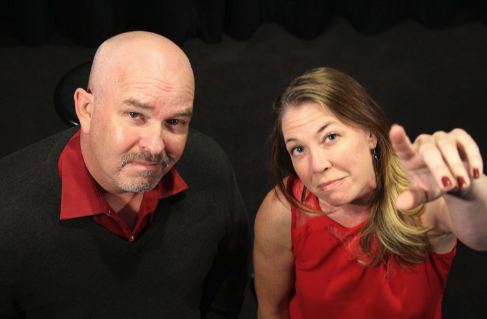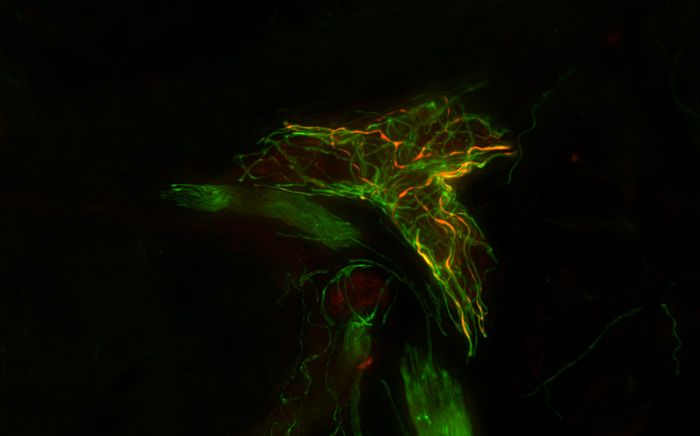… a thriving, physically fit, self-employed, well-respected professional
Anonymous
would not want to disclose this diagnosis
Everyone once in a while, someone sends me something they wrote in response to my blog. I received this a couple of weeks ago from a reader who had originally sent it to me in 2017. At the time she still had not “come out” about her Parkinson’s Disease diagnosis. Today, she is doing remarkably well, still working and exercising a lot, and still has not officially “come out!” Even though this was written 6 years ago, it still represents how she feels about living with Parkinson’s. She has asked to remain anonymous.
September 19, 2017
Hi Sharon,
I read with interest your “re-post” of Breast Cancer vs. Parkinson’s. Thank you for your constant help to the PD community and the many valuable resources you provide, both personally in the community and on your excellent website. You are a generous soul.
I attended one of your group meetings in West L.A. in August 2016. Distressed by the variety of conditions I saw, and feeling strong, optimistic, joyful, and energetic, I have since retreated into the privacy of my medical condition, the experience of which I can only share occasionally with
two long-distance friends and rarely with family members, who probably worry more than I know.
Earlier this year I attended a memorial service for a prominent man who passed away at age 86 after suffering for many years with PD. His dedicated wife (who I constantly want to barrage with questions, but won’t) had told me at one point, “There is a glimmer of him inside
somewhere.” I met another PD patient who was bedridden – yet another world-renowned business leader in his younger days – who also died in his 80’s this year; he didn’t drool, and he was somewhat responsive, connecting with his eyes and extending a fragile, frozen hand to
acknowledge me on the one occasion we met.
These gentlemen could easily have been associated with “old age” as much as with PD. But the difference of PD, and the reason so many of us keep it a secret, was highlighted by a speaker at the memorial service. He said, “If you are diagnosed with Parkinson’s Disease, others tend to
associate you with the disease.” This means that once people know you have PD, they think of you not as you, but rather as a person afflicted with PD, and they are always looking for signs, symptoms, and evidence of progression.
The profound truth of that statement is the primary reason that I keep my diagnosis a secret. The day-to-day reality is that PD is commonly associated with cognitive deficits in addition to distracting movements. So a thriving, physically fit, self-employed, well-respected professional
would not want to disclose this diagnosis (and so sneaks the medication, mentally relaxes the tremor, or hides the shaky limb). In my world, cognitive acuity is expected and valued, and lack of it, for whatever reason, is subject to ridicule or attack. Disclosure means the end of work,
which is hard enough to come by in my competitive market. If you’re not financially ready to retire, or move on to other work in which an association with the disease is not the death knell, you need to keep the secret.
PD is degenerative, not a quick killer like untreated cancer. So, while cancer is deadly and its treatment devastating, there is frequently that light of relative normalcy that those afflicted can hope for at the end of the very dark tunnel.
PD, on the other hand, is perceived as an abysmal disease, one which will slowly suck you into incapacity for years to come, most like Alzheimer’s. And, I don’t know why, but everyone seems to have had a relative who died after a “horrible, horrible” existence with PD. We write Alzheimer’s patients off; many of us with PD – young onset or young onset-like – are not ready
to be written off and declared disabled. We don’t want to be the subject of curious whispers until we must face the time when it is or will be necessary to change our lives – like everybody else.
My mantra – adopted from the first meeting with my treating neurologist – is that I will manage this condition until I die of heart disease or cancer like everybody else. I could write a book on why this is a completely normal life. Actually, an even better life.
And there you have it. “Everybody” has cancer. There’s a ubiquitousness to it. PD just isn’t the same. Thank God, right?
I think one answer is to seek publicity and help from those who are close to the patients who succumb at a young age (or, of course, are in a unique position like that of Michael J. Fox). However, this is not the kind of universal support that is needed to raise enough money for research, as with cancer.
If I had to draw a parallel, I’d probably compare the stigma of PD with that of mental illness. Only once you are financially secure, have demonstrable mainstream success, have your career in your rearview mirror, or reprioritize your own life, can you have the freedom to share your
disease, to endure being associated with the disease, and stand as an example…or an exemplar.
So here I am, not raising awareness, secretly contributing where and how I can, but leading a magnificent and transformed life. I’m just like everybody else, because as I was once told, “Everybody is messed up.”
In my “messed up” life, I have discovered adventure, physical fitness, competitiveness, joy, pride, and exponentially greater gratitude, compassion, dedication to kindness, and generosity of spirit than ever before. Can there be any greater gifts? Much of this derives from my
diagnosis.
But that’s just me. My secret gives me this life.
Sunday Mornings with Twitchy Woman
You won’t want to miss this event which is open to everyone
November 19, 2023 at 1 PM ET, 10:00 AM PT
What I Didn’t Say

With Matthew Moore. Based on extensive interviews, this relatable portrayal of Paul and Marty’s journey through Parkinson’s helps us explore, from a safe distance, the issues we all face–the patient’s struggle with every-growing motor and non-motor symptoms, the overwhelming demands on care partners, the difficulty of genuine communication with medical professionals, and nearly everything in-between.
Register on Evenbrite.
Have a great week!










Leave a comment